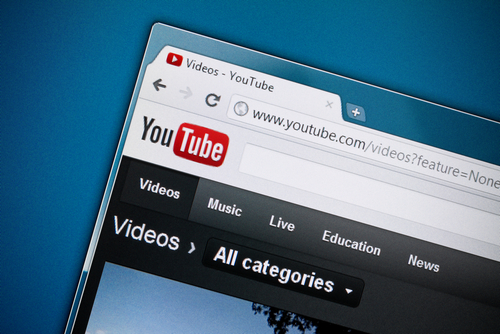YouTube ‘Terminates’ RT German Channels, Russia Threatens Retaliation

Russia threatens retaliation after German YouTube channels belonging to Russia’s RT were deleted for Covid misinformation breaches
Google’s YouTube division has made another high profile example of those channels breaking its policies and rules surrounding Coronavirus misinformation.
Reuters has reported that YouTube has deleted the German-language channels of state-backed broadcaster RT (formerly Russia Today). RT is a Russian state-controlled television network funded by the federal tax budget of the Russian government.
The move has incensed the Russian government, which in retaliation has threatened to block YouTube.
Earlier this year Russia threatened to slowdown Google services in the country over allegations that Google had failed to delete what Russia called ‘unlawful content.’
![]()
YouTube vs RT
YouTube said on Tuesday that RT’s channels had breached its Covid-19 misinformation policy, Reuters reported.
“YouTube has always had clear community guidelines that outline what is allowed on the platform,” said a spokesperson.
Indeed, the platform has this week updated its policies surrounding “harmful vaccine content on YouTube.”
It seems that RT’s German channel was initially issued a strike for uploading content that violated YouTube’s Covid misinformation policy, resulting in a suspension of posting rights on the platform for a week.
However during that suspension, the Russian broadcaster reportedly tried to use another channel to circumvent the ban on uploading.
“As a result both channels were terminated for breaking YouTube Terms of Service,” said the spokesperson.
Russian reaction
But YouTube’s action has prompted a furious reaction from the Russian government, which also said it was considering retaliating against German media as a whole.
Russia’s Foreign Ministry described the move as “unprecedented information aggression.”
Russian state communications regulator Roskomnadzor has reportedly written to Google and demanded that the restrictions be lifted.
It said Russia could seek to partially or fully restrict access to YouTube if it failed to comply.
Moscow also said it may have to force YouTube to comply with Russian law, saying there could be zero tolerance for breaches.
“Of course there are signs that the laws of the Russian Federation have been broken, broken quite blatantly, because of course this involves censorship and obstructing the spread of information by the media,” Kremlin spokesperson Dmitry Peskov was quoted by Reuters as telling reporters.
The foreign ministry said Russian authorities had been approached with “a proposal to develop and take retaliatory measures against the YouTube hosting service and the German media.”
Christian Mihr, executive director at Reporters Without Borders (RSF) Germany, was quoted by Reuters as saying the threat of action against German journalists was “completely inappropriate.”
Google has reportedly denied to comment.
But it is not secret that Russia has ramped pressure on foreign tech firms in the past year, fining social media companies for failing to delete content Russia deems illegal and punitively slowing down the speed of Twitter.
That pressure led Google and Apple to remove an anti-government tactical voting app from their stores on the first day of a parliamentary election earlier this month.
Misinformation crackdown
Meanwhile tech firms are facing pressure from Western governments as well.
In July the US administration reportedly targetted YouTube, and not only Facebook, as it sought to stem the spread of misinformation about Covid-19 vaccines amidst renewed pandemic pressure.
Earlier that month President Joe Biden had commented that Facebook was “killing people” due to Covid misinformation, but backtracked to put the focus on a dozen users held responsible for spreading two-thirds of the fabrications in question.
He told reporters he wanted Facebook to “do something about the misinformation, the outrageous misinformation about the vaccine”.
But the US administration is also taking YouTube to task over the matter, with both Facebook and the Google-owned video-sharing site having “inconsistent enforcement”, an unnamed senior administration official told Reuters.